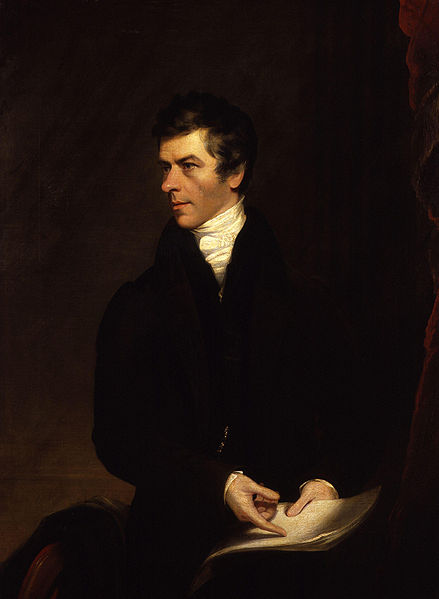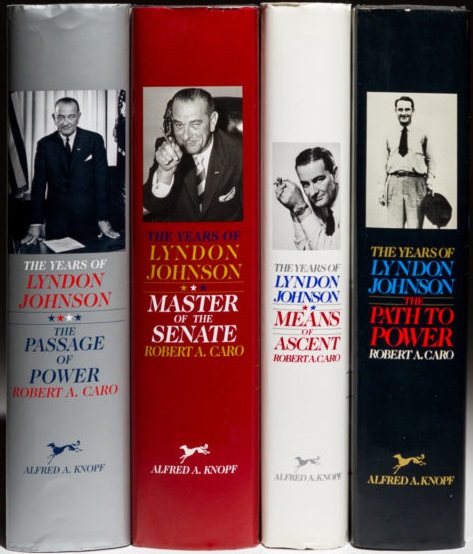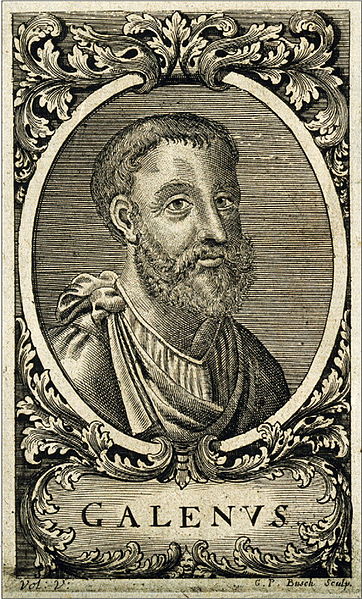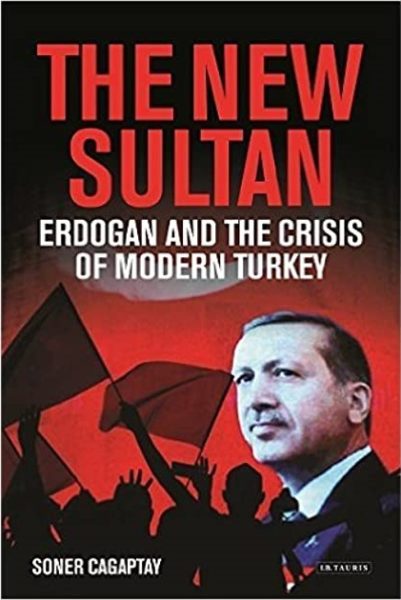The Cynical Historian
Published 27 Jul 2017This one is a contender for best historical film of 2016. The Founder is an amazing movie about the beginning of the McDonald’s food chain. Seriously, more films should take cues from this.
————————————————————
references:
http://www.historyvshollywood.com/ree…http://time.com/money/4602541/the-fou…
http://content.time.com/time/magazine…
https://www.bustle.com/p/how-accurate…
https://www.washingtonpost.com/entert…
https://www.theatlantic.com/entertain…
https://www.nytimes.com/2016/05/20/bu…
http://www.abc.net.au/news/2016-11-24…
http://www.cbsnews.com/news/the-real-…
https://en.wikipedia.org/wiki/Ray_Kroc
https://en.wikipedia.org/wiki/Richard…
————————————————————
contribute to my Patreon:
https://www.patreon.com/CynicalHistorianLET’S CONNECT:
https://twitter.com/Cynical_History
————————————————————
Wiki:
The Founder is a 2016 American biographical drama film directed by John Lee Hancock and written by Robert Siegel. The film stars Michael Keaton as businessman Ray Kroc, and portrays the story of his creation of the McDonald’s fast food chain. Nick Offerman and John Carroll Lynch co-star as McDonald’s founders Richard and Maurice McDonald.The film premiered at Arclight Hollywood on December 7, 2016 and was released in the United States on January 20, 2017, by The Weinstein Company. It grossed $23 million worldwide and received generally positive reviews from critics, with praise for Keaton’s performance.
————————————————————
Hashtags: #History #TheFounder #McDonalds #Review #BasedOnATrueStory #RayKroc
June 24, 2021
The Founder | Based on a True Story
June 21, 2021
QotD: The young Richard Nixon
As a schoolboy he hadn’t a single close friend, preferring to cloister himself up in the former church’s bell tower, reading, hating to ride the school bus because he thought the other children smelled bad. At Whittier, a fine Quaker college of regional reputation unknown anywhere else, he embarked upon what might have been his most humiliating job of all: learning to be a backslapping hail-fellow-well-met. (“I had the impression he would even practice his inflection when he said ‘hello'”, a reporter later observed.) The seventeen-year-old blossomed when he realized himself no longer alone in his outsiderdom: the student body was run, socially, by a circle of swells who called themselves the Franklins, and the remainder of the student body, a historian noted, “seemed resigned to its exclusion.” So this most unfraternal of youth organized the remnant into a fraternity of his own. Franklins were well-rounded, graceful, moved smoothly, talked slickly. Nixon’s new club, the Orthogonians, was for the strivers, those not to the manner born, the commuter students like him. He persuaded his fellows that reveling in one’s unpolish was a nobility of its own. Franklins were never photographed save in black tie. Orthogonians wore shirtsleeves. “Beans, brains, and brawn” was their motto. He told them *orthogonian* — basically, “at right angles” — meant “upright,” “straight shooter.” Also, their enemies might have added, all elbows.
The Orthogonians’ base was among Whittier’s athletes. On the surface, jocks seem natural Franklins, the Big Men on Campus. But Nixon always had a gift for looking under social surfaces to see and exploit the subterranean truths that roiled underneath. It was an eminently Nixonian insight: that on every sports team there are only a couple of stars, and that if you want to win the loyalty of the team for yourself, the surest, if least glamorous, strategy is to concentrate on the nonspectacular — silent — majority. The ones who labor quietly, sometimes resentfully, in the quarterback’s shadow: the linemen, the guards, the punter. Nixon himself was exemplarily nonspectacular: the 150-pounder was the team’s tackle dummy, kept on squad by a loving, tough, and fatherly coach who appreciated Nixon’s unceasing grit and team spirit — nursing hurt players, cheering on the listless, even organizing his own team dinners, entertaining the guests on the piano, perhaps favoring them with the Orthogonian theme song. It was his own composition.
Nixon beat a Franklin for student body president. Looking back later, acquaintances marveled at the feat of this awkward, skinny kid the yearbook called “a rather quiet chap about campus,” dour and brooding, who couldn’t even win a girlfriend, who attracted enemies, who seemed, a schoolmate recalled, “the man least likely to succeed in politics.” They hadn’t learned what Nixon was learning. Being hated by the right people was no impediment to political success. The unpolished, after all, were everywhere in the majority.
Rick Perlstein, Nixonland: The Rise of a President and the Fracturing of America, 2008.
June 17, 2021
Encouraging innovation by … rejigging the honours system
In the latest Age of Invention newsletter, Anton Howes considers how one man’s efforts to encourage and reward innovation in the United Kingdom eventually led to “mere inventors” receiving honours that once were dedicated to military paladins and political giants:

Henry Brougham, 1st Baron Brougham and Vaux, by James Lonsdale (died 1839), given to the National Portrait Gallery, London in 1873.
Image from the National Portrait Gallery via Wikimedia Commons.
One of my all-time favourite innovation evangelists is the nineteenth-century barrister, journalist, and politician Henry Brougham. He was an innovator himself, in the late 1830s designing a form of horse-drawn carriage, and as a teenager even managed to get his experiments on light published in the Royal Society’s prestigious Transactions. But his main achievements were as an organiser. Clever, dashing, and articulate, the son of minor gentry, he was an evangelist extraordinaire. In the 1820s he helped George Birkbeck to found the London Mechanics’ Institute (which survives today as Birkbeck, University of London), was instrumental in the creation of University College London (to provide a university in England where you didn’t have to swear an oath to the Church of England), and founded the Society for the Diffusion of Useful Knowledge (to print reference works and textbooks cheaply and in bulk). They were all organisations intended to widen access to education, spreading science to the masses.
He also presided at the opening of many more worker-run mechanics’ institutions, libraries, and scientific societies. As a Member of Parliament who went out of his way to support workers’ efforts at self-education, even though none of them could vote, Brougham thus became something of a celebrity to working-class inventors. John Condie, born in Gorbals, Glasgow, to poor parents, and apprenticed to a cabinet maker, would become a prolific and successful improver of iron-making, locomotive springs, and photography, as well as an inspiring lecturer on scientific subjects in his own right — his students at the Eaglesham Mechanics’ Institution were reportedly so engrossed that they would attend his evening classes until midnight. Having once exhibited a model steam engine at the opening of the Carlisle Mechanics’ Institution, however, Condie was reportedly “not a little proud” that Brougham — who had presided at the opening — recalled the model over thirty years later. The detail comes from Condie’s obituary notice in the local papers; I like to think that it was a story upon which he frequently dined out.
Brougham’s celebrity, I suspect, made him appreciate the usefulness of status and prestige, and his influence only grew when in 1830 he was made a lord and appointed Lord High Chancellor — a high-ranking ministerial position, which he held for four years. Brougham was soon behind many efforts to increase the visibility of inventive role-models. The nineteenth-century mania for putting up statues — to people like Johannes Gutenberg, Isaac Newton, and James Watt — often had Brougham or his political allies behind them. Brougham even hoped that while the “temples of the pagans had been adorned by statues of warriors, who had dealt desolation … ours shall be graced with the statues of those who have contributed to the triumph of humanity and science”.
His hero-making extended to print, too, when in the 1840s his Society for the Diffusion of Useful Knowledge embarked on publishing a comprehensive biographical dictionary — an early forerunner to the Oxford Dictionary of National Biography, but with the extraordinary aim of covering notable individuals from all over the world. It managed to print seven volumes covering the letter “A” before financial considerations forced the whole society to cease, but in 1845 Brougham published Lives of Men of Letters and Science who Flourished in the Time of George III, in which he showcased a handful of eighteenth-century literati and scientists from whom readers were to draw inspiration.
And Brougham tried to raise the status of inventors who were still living. This was done by co-opting a Hanoverian order of chivalry, the Royal Guelphic Order (by this stage the kings of the United Kingdom of Great Britain and Ireland were also simultaneously the kings of Hanover). The order was generally used to recognise soldiers, but an interesting precedent had been set when the astronomer Frederick William Herschel, the discoverer of Uranus, had been made a knight of the order in 1816. So when Brougham rose to power in the 1830s, he envisaged using it more widely, to recognise inventors, scientists, and medical pioneers, as well as literary scholars like museum curators, archivists, antiquarians, historians, heralds, and linguists. Thanks to Brougham’s machinations, the knighthood of the order was offered to the mathematician James Ivory, the scientist and inventor David Brewster, and the neurologist Charles Bell (after whom Bell’s Palsy is named). It was later also awarded to serial inventors like John Robison, who improved the accuracy of metal screws, experimented with cast iron canal locks and the water resistance of boats, and applied pneumatic presses to cheesemaking.
One problem, however, was that the Royal Guelphic Order was considered second-rate. It was technically a foreign order, and did not actually entitle one to be called “Sir” in the UK. The mathematician and computing pioneer Charles Babbage was apparently insulted to have been fobbed off with the offer of a Guelphic knighthood instead of a British one. Although William Herschel had accidentally been called “Sir” during his lifetime, this was soon realised to be a mistake in protocol. When his son John — a scientific pioneer in his own right — was also made a knight of the order, he was also quietly knighted normally a few days later so that the rest of the family would be none the wiser. And regardless, the whole scheme came to an end with the accession of Queen Victoria in 1837 — as a woman, she did not inherit the throne of Hanover, and so appointments to the Guelphic order simply passed out of British control.
June 16, 2021
QotD: The Shah of Iran
The Shah that emerges from these pages would be almost a tragic figure, if they gave us a better feel for him as a person, that is to say as a living being rather than a mere policy-maker. He was by nature a vacillator, thrust by inheritance and a destiny beyond his control into a position in which vacillation would eventually prove fatal. In addition to self-doubt, however, he was also inclined to vainglory, oscillating between the two, retreating from crises and ostentatiously parading himself, and boasting, when things seemed to be going well. He thought that he had both the right and the duty, genuinely for the sake of his country, to rule rather than reign, but while he had the ideas of an autocrat, he also had those of an ordinary decent person who baulked at the shedding of much blood, the only way, in the end, that he could have preserved his throne (and possibly not even then).
He was intelligent and wily, and his achievements were not negligible. He managed to wrest control of Iran’s oil first from the British and then from the international oil consortium that succeeded them. He played the oil market with great skill. He instituted an important land reform that genuinely benefitted the peasantry, expanded education, and had a full understanding of the importance of technology in the modernization of Iran necessary if it were to be anything other than a dependent state. His foreign policy was flexible, pragmatic, and shrewd. He needed the Americans but did not trust them (or anybody else, for that matter), realising that in politics there were no friendships, only common interests. This was to be borne out in the most terrible and tragic way during his last few years of exile, with which this book does not deal. Where there is no friendship, there is no gratitude for services rendered.
His failures were at least as great as his successes, and in the end more important from the point of view of his personal destiny. He so hollowed out political life in Iran, in order to exercise power as a true autocrat, that it came to have two poles: sycophancy and plotting against him. Sycophancy is a terribly addictive drug, no doubt a permanent temptation of the powerful (and therefore a good reason to restrict political terms of office); you can never have enough of it, nor can it ever be outrageous enough.
Unfortunately for the Shah, no one is sycophantic from principle, indeed sycophants tend (rightly) to despise themselves, fully aware that they are acting from the most naked of self-interest. There is no rat that leaves a sinking ship faster than a sycophant deserting a lost cause. A sycophant will take a risk to preserve his skin, but not to preserve his master.
Theodore Dalrymple, “Downfall of the House of Pahlavi”, The Iconoclast, 2021-03-03.
June 11, 2021
Is Finland an Ally of Nazi Germany? – Carl Gustaf Mannerheim – WW2 Biography Special
World War Two
Published 10 Jun 2021Carl Gustaf Mannerheim is a national hero after his service in everything from the Finnish Civil War to the Winter War. But did he plan a war of aggression with Nazi Germany against the Soviet Union? And if so, did Hitler and Stalin even give him any choice in the matter?
(more…)
June 3, 2021
The Supernatural Adventures of Arthur Conan Doyle | B2W:ZEITGEIST! I E.19 Spring – 1923
TimeGhost History
Published 2 Jun 2021Being the creator of the legendary Sherlock Holmes has made Arthur Conan Doyle famous for his scientific rationality. But Doyle also has a deeply held belief in the existence of the spirit universe. In a world still reeling from the shock of the Great War, he is not alone.
(more…)
May 17, 2021
Christopher Hitchens – On EconTalk discussing George Orwell [2009]
CaNANDian
Published 25 Sep 2012Christopher Hitchens talked with EconTalk host Russ Roberts about George Orwell. Drawing on his book Why Orwell Matters, Hitchens talked about Orwell’s opposition to imperialism, fascism, and Stalinism, his moral courage, and his devotion to language. Along the way, Hitchens made the case for why Orwell matters.
Download audio: http://www.econtalk.org/archives/2009…
May 12, 2021
The World’s First Lady – Eleanor Roosevelt – WW2 Biography Special
World War Two
Published 11 May 2021She is much more than the wife of President Franklin D. Roosevelt and once she tasted political life, she soon followed her own interests, changing what it means to be a politician’s wife.
(more…)
May 10, 2021
They don’t make politicians like Lyndon Johnson anymore … thank goodness
Another of the reader-contributed book reviews at Astral Codex Ten considers the personal history and astounding political career of LBJ, as told by biographer Robert Caro:
2: LBJ’s guide to amassing power
(i) Seduce older men
(Eww, not like that.) LBJ had a gift for becoming a “professional son” to any powerful man. At college, LBJ sat at professors’ feet and stared at them as if they were God’s gift to the educational system. LBJ constantly ran errands for the college president, Prexy Evans, and wrote glowing editorials about him.
LBJ’s fellow students were not amused. One said:
“Words won’t come to describe how Lyndon acted toward the faculty — how kowtowing he was, how suck-assing he was, how brown-nosing he was.”
But this flattery paid off. Evans put LBJ in charge of the financial aid program. Yes, really. And when other students wrote nasty comments about LBJ in the yearbook (e.g. the time he stole the Student Council elections), Evans ordered professors to cut out those pages with razors.
LBJ would repeat this flattery with President (Franklin) Roosevelt, Speaker Rayburn, and Senator Russell.
(ii) Treat your employees like dirt
LBJ wanted his staff to be absolutely loyal, so he could direct them like chess pieces. He found their weak points — their weight, their divorce — and mercilessly taunted them. I’m not going to describe the crude things he did.
Before his marriage, LBJ treated Lady Bird like an angel; once they were married, he treated her like one of his employees.
[…]
(v) Use money in new and exciting ways
LBJ funneled government contracts to Brown & Root, a construction company. In return, they gave his campaign gobs of money. During the 1948 election, two of his campaign staff ate at a cafe and then accidentally left behind a brown paper bag containing $50,000 in cash (more than $500,000 in today’s money). Luckily no one stole it.
Using all of this money, LBJ was able to make the media say whatever he wanted about his opponent, Coke Stevenson. He hired “missionaries” to hang out in bars and spread rumors about Stevenson. Thousands of federal workers also repeated LBJ’s talking points.
(vi) Cheat
But Stevenson was a storybook character, so money couldn’t defeat him. He simply told the people of Texas that he would continue to do the right thing, and they believed him. LBJ had lost the 1941 Senate election because Pappy O’Daniel had cheated better than he did. Now LBJ would cheat, and he would cheat big.
In 1940s Texas, basically every type of election fraud was real: Dead people voting, county bosses writing down whatever numbers they wanted, Mexicans being hired to cross the border and vote, etc. By buying tens of thousands of votes, LBJ was almost able to close the gap between him and Coke Stevenson. That wasn’t enough, so six days after the election, Luis Salas “found” 200 more votes for LBJ, giving him a margin of victory of 0.01%.
April 10, 2021
Galen of Pergamon
Scott Alexander asked some of his readers to submit book reviews that he’ll be publishing anonymously to allow the rest of the readership to vote on. Friday’s submission was a review of the work of Galen of Pergamon … to help determine if he deserves all the kicks he’s received from other writers over the last two millennia:
Aelius Galenus or Claudius Galenus (henceforth “Galen”) was born in Pergamon, a town in modern-day Turkey, in 129 CE. At the time, it was a part of the Roman empire, and a major intellectual center. Galen’s father was an architect; while rich, he was not considered to be particularly high status. Since there was little pressure for his son to go into a traditional career, instead of the “safe” subjects of literature and rhetoric that most Romans studied, Galen got an unusual education in mathematics and geometry.
(His father’s patient encouragement has its foil in his mother, who “flew into rages and bit her servants, a practice of which Galen disapproved.”)
When Galen was a teenager, however, his father had a dream where the god of medicine appeared and told him that his son should study medicine, so Galen started training as a doctor.
During this training Galen became familiar with the writings of Hippocrates, who had lived about 600 years earlier. Hippocrates had introduced the idea of the four humors to medicine — four fluids that congeal together to form our flesh and organs, and which co-mingle in our veins in their liquid form. Hippocrates came up with this system, but Galen would be the one to make it world-famous.
I could try to describe the theory myself, but actually Hippocrates does a great job on his own:
The Human body contains blood, phlegm, yellow bile and black bile. These are the things that make up its constitution and cause its pains and health. Health is primarily that state in which these constituent substances are in the correct proportion to each other, both in strength and quantity, and are well mixed. Pain occurs when one of the substances presents either a deficiency or an excess, or is separated in the body and not mixed with others.
All disease and illness, in this system, were the result of an imbalance in the four humors. From this perspective, treatments like bloodletting make perfect sense. By opening up the veins, the excessive humors drain away, leaving the patient more balanced — in better humors.
Long-term trends towards any of the humors were responsible for what we would call personality. Hence the terms sanguine, phlegmatic, melancholy and so on for different personal traits and emotional conditions.
This is the theory that he would put his weight behind, and which he would eventually be responsible for bringing to the majority of the western world.
When Galen was 19, his father died, leaving him independently wealthy. Hippocrates wrote that a good doctor should travel, so Galen ended up spending a decade studying with medical experts from various schools in cities all around the Mediterranean, including Alexandria.
After this, he came back to Pergamon where he got a job as the doctor treating the gladiators of the city. This was an unusual step for someone of his wealth and education, because despite their popularity as a form of entertainment, gladiators at the time were considered extremely low-class.
It’s not clear why he took this job, but it seems likely that it influenced how he thought about medicine. Spending long hours stitching gladiators back together gave him a detailed knowledge of human anatomy, which other doctors of the time lacked. It sounds like he did a great job, too, because only five of the gladiators died during his time there — compared to 60 under the guy who had the job before.
Eventually all roads lead to Rome, of course, and Galen arrived in 162 CE. His lectures and demonstrations made such an impression, and ruffled so many feathers, that he was afraid of getting poisoned by the Roman doctors and eventually left to save his life. In 169 CE, however, a great plague (probably smallpox) broke out, and Marcus Aurelius summoned him back to Rome to serve as court physician. Marcus Aurelius died the next year (according to some sources, of the plague), but Galen ended up with a longterm post in Rome as physician to the new Emperor, Commodus.
Galen himself died some time between 199 and 216 CE, at the the ripe old age of between 70 and 87.
March 24, 2021
Eichmann: Mass Murderer or Train Conductor? – WW2 Biography Special
World War Two
Published 23 Mar 2021Adolf Eichmann was one of the masterminds behind the “Final Solution of the Jewish Question”. Or was he? In his trial, he argued to be merely a bureaucrat who was following orders. This episode attempts to shine a light on the real role of this controversial figure.
Did 90 Minutes Decide the Fate of the Jews? – The Wannsee Conference – WAH 027 – January 1942 Pt. 2: https://www.youtube.com/watch?v=Hd1gH…
Join us on Patreon: https://www.patreon.com/TimeGhostHistory
Or join The TimeGhost Army directly at: https://timeghost.tvFollow WW2 day by day on Instagram @ww2_day_by_day – https://www.instagram.com/ww2_day_by_day
Between 2 Wars: https://www.youtube.com/playlist?list…
Source list: http://bit.ly/WW2sourcesHosted by: Spartacus Olsson
Written by: Spartacus Olsson, Joram Appel
Director: Astrid Deinhard
Producers: Astrid Deinhard and Spartacus Olsson
Executive Producers: Astrid Deinhard, Indy Neidell, Spartacus Olsson, Bodo Rittenauer
Creative Producer: Maria Kyhle
Post-Production Director: Wieke Kapteijns
Research by: Joram Appel
Edited by: Karolina Dołęga
Sound design: Marek KamińskiColorizations by:
Daniel Weiss
Spartacus Olsson
Mikołaj UchmanSources:
– Yad Vashem: 3887/1, Y69EO4_, 1605/1431, 102co3, 76/68, 4229/59, 29/56, 73GO3_, 74AO9_, 1922/6, 2749/3, 2986/71, 4229/61, 03/198, 4613/789, 73AO6, 1572/17,
– United States Holocaust Memorial Museum
– Bundesarchiv
– Icons from the Noun Project: freight car by Evgeni Moryakov, School by Adrien Coquet, Watchtower by Eliricon
– Picture of Frontkämpfervereinigung in 1925 courtesy of Wienbibliothek im Rathaus, Tagblattarchiv Fotosammlung, TF-999034
– Picture of Wannsee villa courtesy of JoJan from Wikimedia Commons
– Library of CongressSoundtracks from Epidemic Sound:
– “Rememberance” – Fabien Tell
– “Deviation In Time” – Johannes Bornlof
– “Last Minute Reaction” – Phoenix Tail
– “It’s Not a Game” – Philip Ayers
– “Moving to Disturbia” – ExperiaArchive by Screenocean/Reuters https://www.screenocean.com.
A TimeGhost chronological documentary produced by OnLion Entertainment GmbH.
March 20, 2021
The rise of Turkish leader Recep Tayyip Erdogan
Scott Alexander reviews Soner Cagaptay’s recent book The New Sultan: Erdogan And The Crisis Of Modern Turkey:
If you only learn one thing from this post: it’s pronounced “air-do-wan”.
If you learn two things from this post, learn that, plus how a country which starts out as a flawed but somewhat-liberal democracy can lapse into near-dictatorship over the course of a few years.
I got The New Sultan: Erdogan And The Crisis Of Modern Turkey because, as a libertarian, I spend a lot of time worrying about the risk that my country might backslide into illiberal repression. To develop a better threat model, I wanted to see how this process has gone in other countries, what the key mistakes were, and whether their stories give any hints about how to prevent it from happening here. Recep Tayyip Erdogan transformed Turkey from a flawed democracy to a partial dictatorship over the past few decades, and I wanted to know more about how.
As an analysis of the rise of a dictator, this book fails a pretty basic desideratum: it seems less than fully convinced the dictator’s rise was bad. Again and again I found myself checking to make sure I hadn’t accidentally picked up a pro-Erdogan book. I didn’t; author Soner Cagaptay is a well-respected Turkey scholar in a US think tank who’s written other much more critical things. The fact is, Erdogan’s rise is inherently a pretty sympathetic story. If he’d died of a heart attack in 2008, we might remember him as a successful crusader against injustice, a scrappy kid who overcame poverty and discrimination to become a great and unifying leader.
I want to go into some of this in more depth, because I think this is the main reason why Erdogan’s example doesn’t generalize to other countries. What went wrong in Turkey was mostly Turkey-specific, a reckoning for Turkey’s unique flaws. Erdogan rose to power on credible promises to help people disenfranchised by the old system; by the time he turned the tables and started disenfranchising others in turn, it was too late to root him out. If there’s a general moral here, it’s that having the “good guys” oppress and censor the “bad guys” is fun while it lasts, but it’s hard to know whether you’re building up a karmic debt, or when you’re going to have to pay the piper.
Given how hard it is to convince people of that moral, let’s go through the full story in more detail.
And given that it’s impossible to discuss modern Turkey without at least briefly touching on the founder of the country, here’s an amusing apocryphal story about “The Father of the Turks”:
Medieval Turkey was dominated by the Ottoman Empire, officially an Islamic caliphate though in practice only inconsistently religious, ruled by autocratic sultans and a dizzying series of provincial governors. As time passed, they fell further and further behind Western Europe; by World War I, they were a mess. As the stress of the war caused the empire to fracture, General Mustafa Kemal seized power, reorganized the scraps of Ottoman Anatolia into modern Turkey, and was renamed ATATURK, meaning “Father of Turks”.
Ataturk was born in Ottoman-controlled Greece, and was typical of a class of military officers at the time who were well-educated and “Europeanized”. He wanted to turn backwards Turkey into an advanced Western country — and Western countries were mostly secular. He saw Islam — the religion of the old Ottoman Empire — as a roadblock, and passed various laws meant to relegate it to the margins of public life.
(my favorite Ataturk story, probably apocryphal, was that he passed a law banning women from wearing hijabs. Nobody followed it and the police wouldn’t enforce it, so he passed a second law requiring prostitutes to wear hijabs, after which other women abandoned them. As far as I can tell this is an urban legend, but it captures the spirit of the sort of measures he took to drag Turkey, kicking and screaming, into secular modernity.)
February 24, 2021
QotD: Margaret Thatcher
I know I’m supposed to hate Margaret Thatcher. I know that someone with my politics is meant to detest her as a union-busting, milk-snatching, women’s-lib-baiting, Belgrano-sinking, Section-28-devising, society-destroying nightmare. I know that when Gillian Anderson was cast as Thatcher in series four of The Crown, I should have played up a shudder of disgust at Gillian Anderson, who is good, playing Thatcher, who is bad.
But here’s the thing: I don’t hate Thatcher. It’s not that I’m a huge fan of her legacy or anything (although anyone who thinks that industrial relations were doing fine before her or that the Falklands were some kind of unjustified expedition is clearly a fantasist), it simply doesn’t matter whether I like her or not because she is just too interesting.
Thatcher wasn’t the first woman to lead a country, but unlike her predecessors, Indira Gandhi in India or Isabel Martínez de Perón in Argentina, she didn’t arrive sanctified by a political dynasty. She was, as Prince Phillip snobbily points out to the Queen in The Crown, a grocer’s daughter. In real life, such condescension came strongly from the Left. The Blow Monkeys, one of the bands involved in the Red Wedge tour to support Labour, released an album called She was only a Grocer’s Daughter in 1987; and even though several pop songs fantasised about her death, that never seemed quite as ugly as supposed defenders of the working class announcing that Thatcher was just too common to rule.
Sarah Ditum, “How Thatcher rejected feminism”, UnHerd, 2020-11-15.
February 9, 2021
History Summarized: Alexander the Great
Overly Sarcastic Productions
Published 19 Sep 2017Linguistically speaking, Alexander means “Defender of Men” from the Greek “alexo“, defend, and “aner/ander“, man. I’ll never be able to not internally think of his name as just meaning “Alex-Man”.
Oh, yeah, also he conquered an empire or something? IDK. I stopped paying attention after his bland name.
PATREON: www.patreon.com/OSP
MERCH LINKS:
Shirts – https://overlysarcasticproducts.threa…
All the other stuff – http://www.cafepress.com/OverlySarcas…Find us on Twitter @OSPYouTube!
January 25, 2021
QotD: Indira Gandhi’s exploitation of the goddess Kali
In colonial India, Kali’s notoriety boomed. For in her both coloniser and colonised found a figurehead. Corrupted by the British, Kali was spun as a sexually depraved, blood-swigging black sorceress. As William Ward phrased it in his encyclopaedia, “She exhibits altogether the appearance of a drunken frantic fury … on whose altar victims annually bleed”. Such descriptions, deemed by Indians to be reductively fixated on her destructive powers to the omission of her maternal reserve, activated a movement for her reclamation and turned her into an icon in the struggle for Indian independence in the late-nineteenth century. Put on calendars, cigarette packets, matchboxes, and subject of hugely popular prints, Kali was embraced as a vision of freedom. The reverence for her was inseparable from politics. And it took just two decades after India gained its freedom for a politician to exploit it.
Indira Gandhi — the daughter of one of the freedom movement’s protagonists Pandit Nehru and India’s first and only female prime minister — chose consciously to co-opt this divinity in service of burnishing her own self-image. Indeed, during her first spell in office, from 1966-1977, Indira’s image was as prolific as the colourful printed pictures of the tantric goddess splashed across India’s towns and bazaars. Her appearance was, understandably, more benign. But in India’s jostling visual marketplace her image — big smile and bobbed black hair shot with a streak of white framed by a demure uttariya (veil) — was as inescapable as any deity’s.
Indira played the demagogue superbly. But just as her popularity among Indians soared, and her political confidence grew, those around her began equating her strong, intolerant, and cold politics with female divinities and their overwhelming powers. According to a hugely contentious apocryphal story, Indira’s young rival Atal Bihari Vajpayee, who would go on to succeed her as prime minister, was so overcome by devotion at the sight of her gallantry during India’s war with Pakistan in 1971 that he called her Ma Durga — Kali’s mother.
Cleo Roberts, “Indira Gandhi: a gift from the gods?”, The Critic, 2020-10-15.










